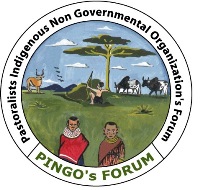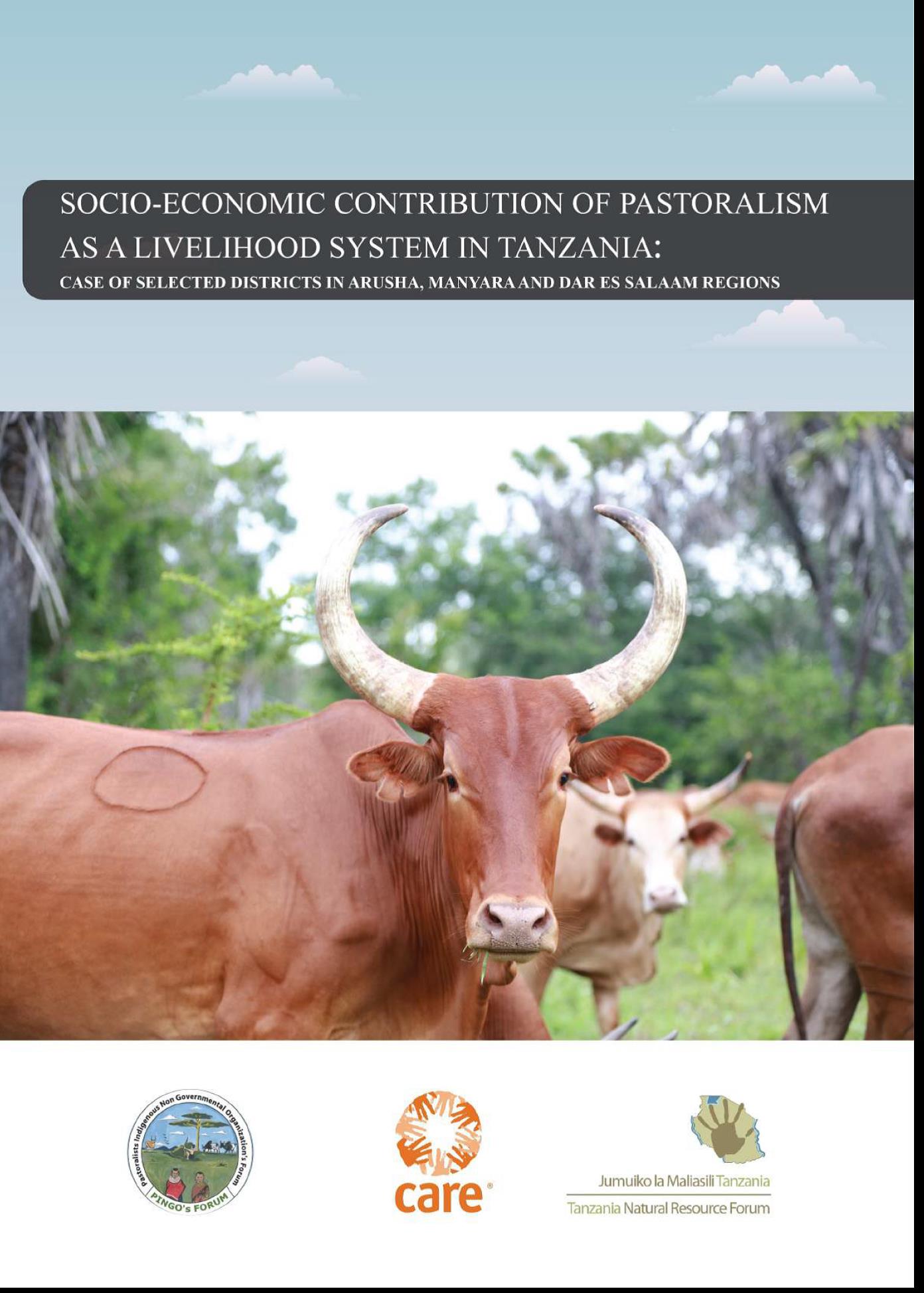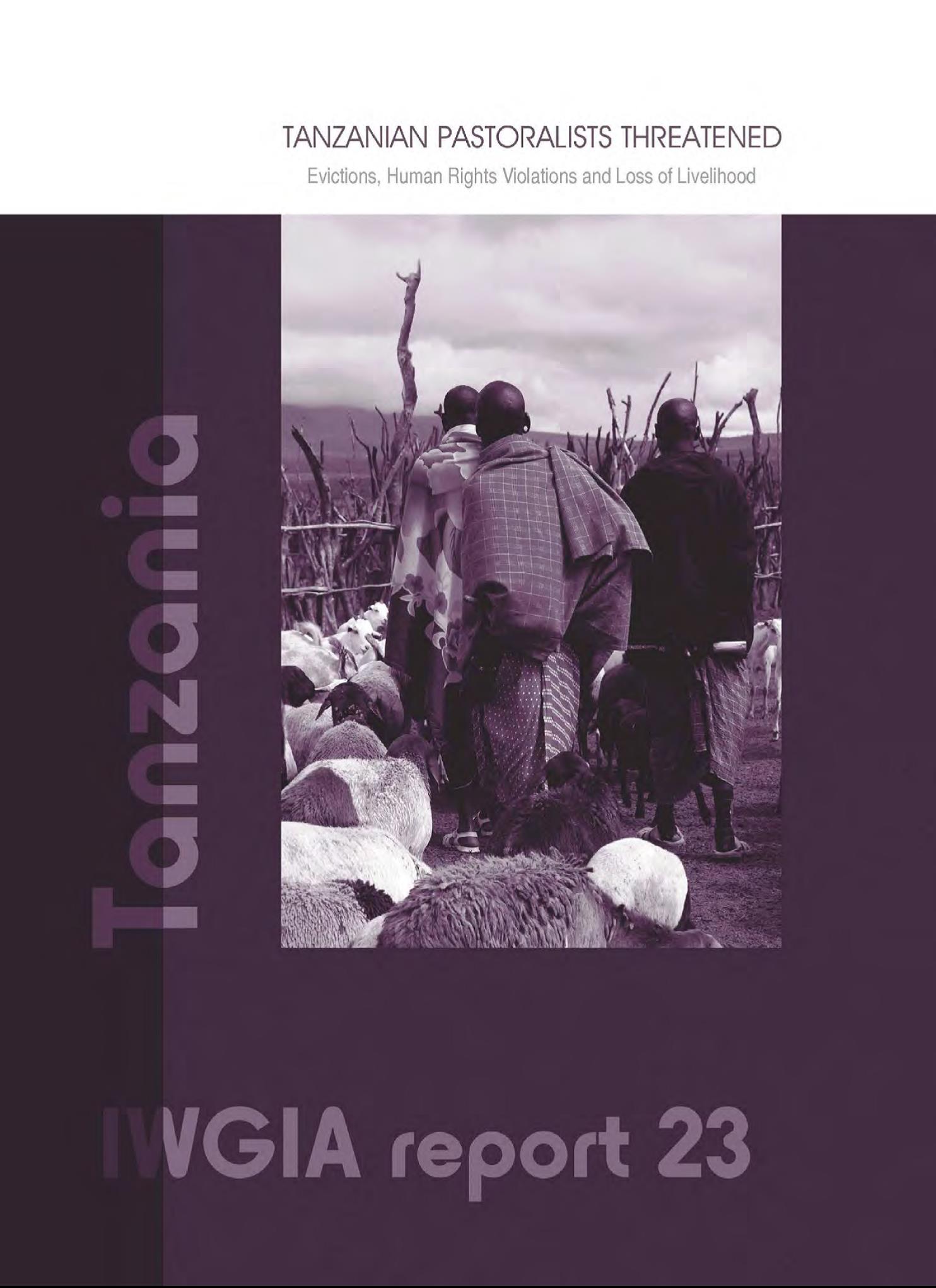Focal point
Location
The Pastoralists Indigenous Non Governmental Organizations Forum (PINGO's FORUM) is an advocacy coalition of indigenous peoples organizations who are currently 53, working in Tanzania for the rights of the marginalized indigenous pastoralists and Hunter-gatherers communities. It was established in 1994 by six pastoralists and hunter gatherers organizations in their struggle for land right and development agenda
OUR MISSION
Sustainable change on good governance and human rights through research, advocacy, competency development and solidarity for improved pastoralists and hunter-gatherers livelihoods
OUR VISION
A sustainable, recognized, respected and protected pastoralism and hunter-gathering rights in Tanzania
OUR GOAL
To have a just and sustainable livelihoods for pastoralists and hunter-gatherer communities.
OUR PURPOSE
To consolidate and amplify the voices of pastoralists and hunter-gatherer to communities demand their rights
Members:
Resources
Displaying 56 - 60 of 146Soci0-Economic Contribution of Pastoralism as a Livelihood System in Tanzania
Tanzania is endowed with numerous resources including livestock. It is number three country in Africa in terms of livestock population after Ethiopia and Sudan. Currently, the country (Tanzania) has more than 22 million livestock, of which at least 95% are indigenous animals kept under traditional livelihood model known as indigenous pastoralism. At least 70% of Tanzanians earn their living through agro-pastoralism whereby around 40% of them entirely practices indigenous pastoralism.
Soci0-Economic Contribution of Pastoralism as a Livelihood System in Tanzania
Tanzania is endowed with numerous resources including livestock. It is number three country in Africa in terms of livestock population after Ethiopia and Sudan. Currently, the country (Tanzania) has more than 22 million livestock, of which at least 95% are indigenous animals kept under traditional livelihood model known as indigenous pastoralism. At least 70% of Tanzanians earn their living through agro-pastoralism whereby around 40% of them entirely practices indigenous pastoralism.
Soci0-Economic Contribution of Pastoralism as a Livelihood System in Tanzania
Tanzania is endowed with numerous resources including livestock. It is number three country in Africa in terms of livestock population after Ethiopia and Sudan. Currently, the country (Tanzania) has more than 22 million livestock, of which at least 95% are indigenous animals kept under traditional livelihood model known as indigenous pastoralism. At least 70% of Tanzanians earn their living through agro-pastoralism whereby around 40% of them entirely practices indigenous pastoralism.
Soci0-Economic Contribution of Pastoralism as a Livelihood System in Tanzania
Tanzania is endowed with numerous resources including livestock. It is number three country in Africa in terms of livestock population after Ethiopia and Sudan. Currently, the country (Tanzania) has more than 22 million livestock, of which at least 95% are indigenous animals kept under traditional livelihood model known as indigenous pastoralism. At least 70% of Tanzanians earn their living through agro-pastoralism whereby around 40% of them entirely practices indigenous pastoralism.
Tanzania Pastoralists threatened: eviction, human rights violations and loss of livelihood
The report explores the evictions of pastoralists and other conflicts over pastoralists’ land in Tanzania, with focus on the past decade.
Although most of these evictions and land based conflicts have been documented, the associated human and legal rights violations have increasingly lead to concern amongst civil society. A study was therefore commissioned to collate the available information as well as to visit affected pastoralist communities to assess the current situation faced by pastoralists in the country.



